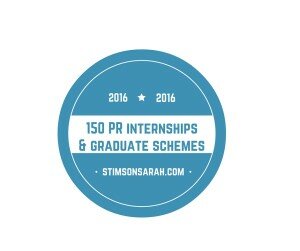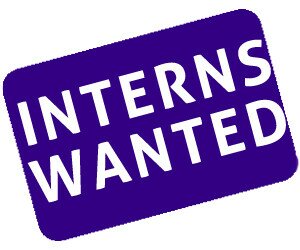
Recruitment in PR is changing. Gone are the darkest days of the recession where applicants were banging down the doors of PR agencies, it’s becoming a candidate led market where firms have to move more quickly to find and secure good talent. Increasingly, potential employees are turning to social media to research the companies they apply to and a new job board is leading the way is employee review and rating community, Glassdoor.
Recently, Stephen Waddington interviewed Joe Wiggins, the lead PR for Glassdoor, a jobs board with a platform for employee reviews of an organisation.
Rachel Miller wrote about it here, and gives a really thorough overview of how Glassdoor works so I won’t repeat that all here.
On the back of the 150 PR internships, apprenticeships, work experience and graduate schemes post I wrote last week, I thought it might be interesting to take a look at the top 50 agencies to see what their current employees say about them. Some of these are global firms so the scores may be representative of more than just the London office, but it still gives a pretty good overview.
Helpfully, employees also list some of the questions they were asked at interview and rate the interview experience so if you’re planning to meet anyone there soon to talk about a job, it could be a really useful resource as part of your interview preparation.
These are listed in the same order as the PR Week top 150 agencies, rather than by their Glassdoor rating. Keep in mind that some agencies have only had one review which may make their score look incredibly high or really low. Ideally you need a few reviews to give you a better idea of a good average.
1. Brunswick: 3.9 stars. 91% would recommend to a friend. 100% approval of CEO.
2. Edelman: 4.1 stars. 85% would recommend to a friend. 96% approval of CEO.
3. Weber Shandwick: 3.9 stars. 82% would recommend to a friend. 96% approval of CEO.
4. FTI Consulting: 3.3 stars. 62% would recommend to a friend. 100% approval of CEO.
5. Bell Pottinger: 4 stars. N/A would recommend to a friend. N/A approval of CEO.
6. H&K Strategies: 4 stars. N/A would recommend to a friend. N/A approval of CEO.
7. Freud: 3.6 stars. N/A would recommend to a friend. N/A approval rating of CEO.
8. Ogilvy PR: 2.7 stars. 46% would recommend to a friend. 56% approval of CEO.
9. Finsbury: 1 star. N/A would recommend to a friend. N/A approval rating of CEO.
10. MSL Group: 3.1 stars. 50% would recommend to a friend. 60% approval of CEO.
11. Ketchum: 3.9 stars. 78% would recommend to a friend. 95% approval of CEO.
12. Instinctif Partners: 2 stars. N/A would recommend to a friend. N/A approval of CEO.
13. Golin: 3.5 stars. 79% would recommend to a friend. 100% approval of CEO.
14. Good Relations Group: Not listed
15. FleishmanHillard: 3.3 stars. 65% woud recommend to a friend. 85% approval of CEO.
16. Cohn & Wolfe: 3.8 stars. 78% would recommend to a freind. 93% approval of CEO.
17. Fishburn: Listed but not rated.
18. Chandler Chicco: 2.7 stars. 24% would recommend to a friend. N/A approval of CEO.
19. The Red Consultancy: Not listed
20. Tonic Life Communications: 2.4 stars. 47% would recommend to a friend. N/A approval of CEO.
21. Portland: Listed but not rated.
22. Burson Marsteller: 3.2 stars. 64% would recommend to a friend. 61% approval of CEO.
23. Four Communications: Listed but not rated.
24. Exposure. Not listed.
25. We Are Social: 3.8 stars. N/A would recommend to a friend. N/A approval of CEO.
26. Maitland. Not listed.
27. Lansons. Listed but not rated.
28. The Communications Store. Listed but not rated.
29. Brands2Life. Listed but not rated.
30. Porter Novelli: 3.3 stars. 65% would recommend to a friend. 84% approval of CEO.
31. Hotwire: Listed but not rated.
32. Nelson Bostock: 5 stars. 100% would recommend to a friend. N/A approval of CEO.
33. The Big Partnership. Not listed.
34. Hanover. Not listed.
35.TVC Group. Not listed.
36. Buchanan: Listed but not rated.
37. Powerscourt. Not listed.
38. Pegasus. Not listed.
39. Red Door Communications. 4 stars. 100% would recommend to a friend. N/A approval of CEO.
40. Camargue Group. Not listed.
41. Frank Not listed.
42. Kraeb Gavin Anderson. 3.4 stars. 100% would recommend to a friend. 100% approval of CEO.
43. Cake: 2.9 stars. 53% would recommend to a friend. N/A approval of CEO.
44. 3 Monkeys. Listed but not rated.
45. Octopus Group. 3 stars. 100% would recommend to a friend. 100% approval of CEO.
46. Eulogy. Not listed.
47. M&C Saatchi Sport & Entertainment. Not listed.
48. Axon Commuications. Not listed.
49. PPS Group. Not listed.
50. Waggener Edstrom. 2.9 stars. 50% would recommend to a friend. 66% approval of CEO.
Like this:
Like Loading...
 The Taylor Bennett Foundation was established in 2007 to improve access to the PR industry for young people from black and minority ethnic backgrounds (BAME). We do this through an award-winning ten week traineeship programme, mentoring, and summer internship placements. Over 150 PR employers support these programmes by donating, hosting visits, offering mentors, and offering work placements.
The Taylor Bennett Foundation was established in 2007 to improve access to the PR industry for young people from black and minority ethnic backgrounds (BAME). We do this through an award-winning ten week traineeship programme, mentoring, and summer internship placements. Over 150 PR employers support these programmes by donating, hosting visits, offering mentors, and offering work placements.








